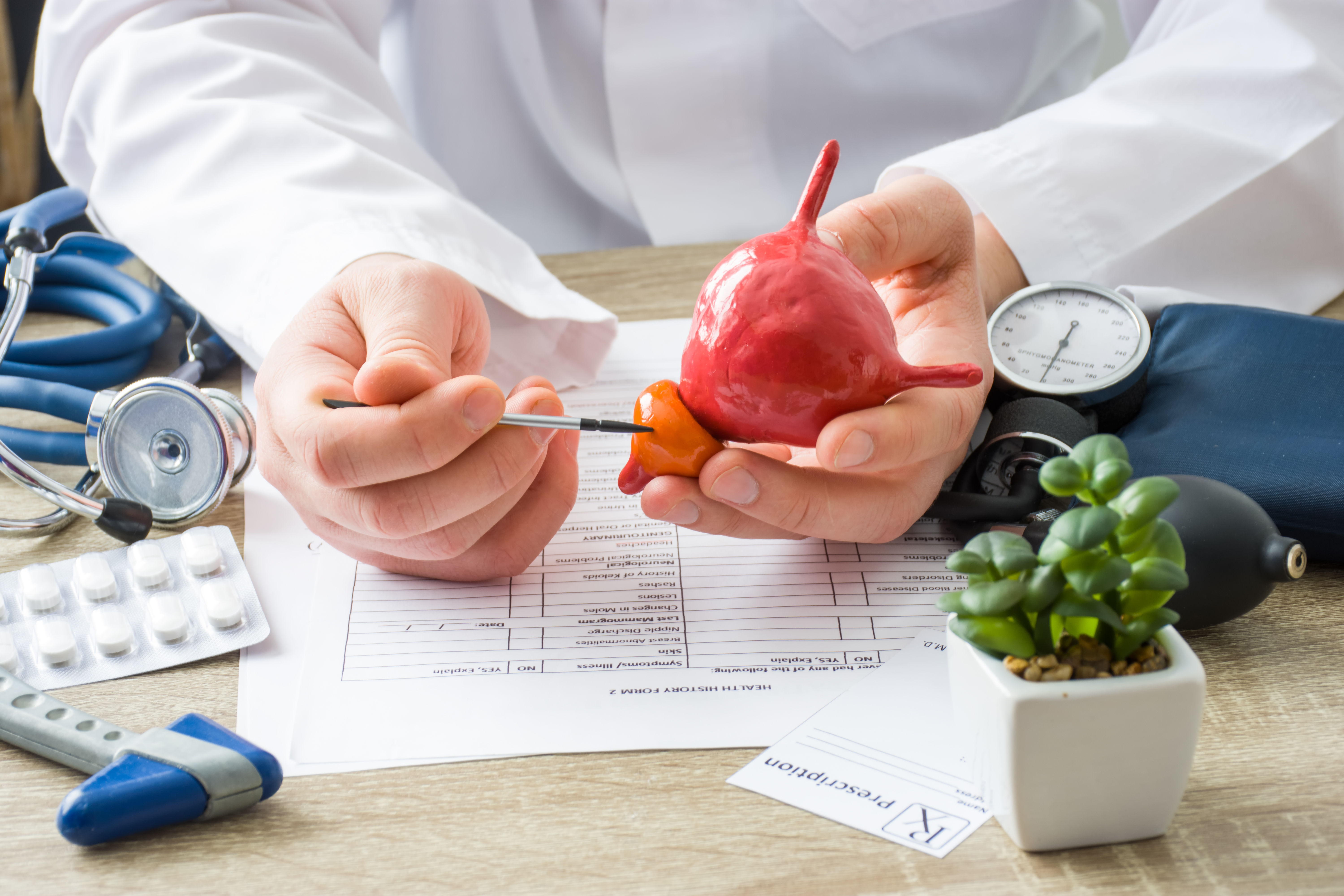DIAGNOSIS
Your physician might require you to undergo several examinations to determine if you have an enlarged prostate. He will also ask you about your symptoms and how it affects your daily life.
Common types of tests that your physician would require includes:
- Urine test to test your sugar levels and to know whether you have diabetes or an infection
- Physical exam to examine your stomach and genital areas
- Blood tests to check if your kidneys are working properly
Additional examinations may be required to rule out the possibility of prostate cancer.
TREATMENT
Treatments depend on the severity of the symptoms.
Some lifestyle changes may help treat persons with an enlarged prostate:
- Eating more fruits and fiber
- Regular exercise
- Minimal intake of alcohol, caffeine, and artificial sweeteners
- Drinking less in the evening
- Using absorbent pads and pants
- Bladder training
For moderate to severe symptoms of prostate enlargement, your physician may require the use of medicines, like anticholinergics, diuretics, desmopressin, and alpha-blockers. Catheters may also be used for persons with chronic urine retention conditions.
Surgery isn’t always required for urinary symptoms. However, if other treatments haven’t worked, surgery needs to be performed.


